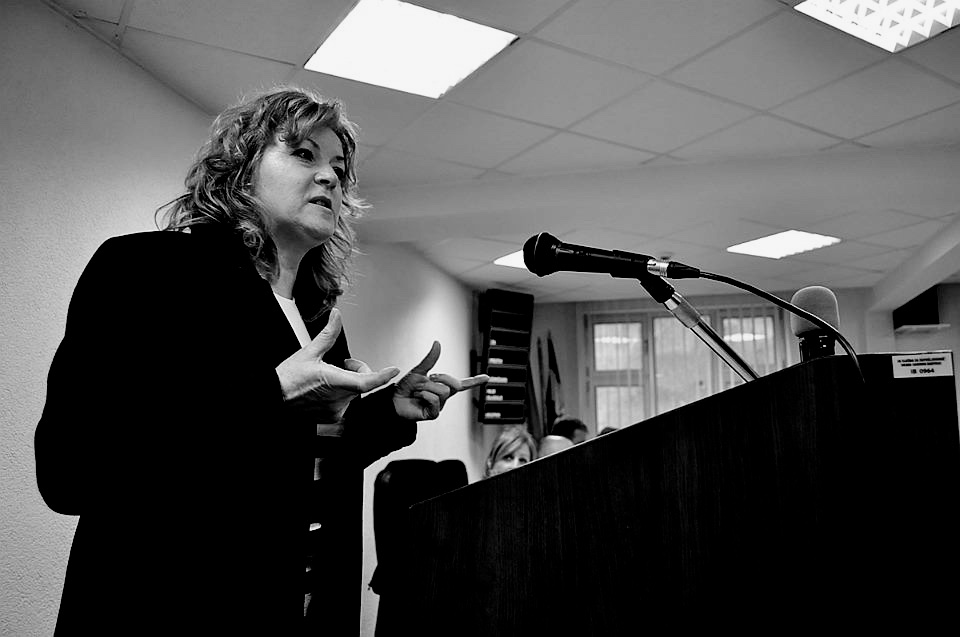In one ballad, Bosnia was a name of a weeping shepherdess in an orchard whose sheep had scattered and where hay had burst to flames by a sudden thunder. The poetic tragedy is matched by an equally haunting fact that Bosnia & Herzegovina, with her war-stricken population of 4 million, is overcoming its internal warzones and facing the future with an uneasy burden of 60% of its young being unemployed. Perhaps even more striking and tragic is the truth that 200,000 of her people remain illiterate. The levels of corruption remain staggeringly high. And the universal capitalist corollary is truer now in Bosnia than ever: the rich are getting richer. The poor are digging beyond rock-bottom. One woman has recently done an incredibly sobering act of delivering an uncompromising lesson to the Bosnian parliament. In this instalment of The Heroes Series, we celebrate her courage.
Šeherzada Delić is a high-school teacher that decided to march into the Bosnian parliament to communicate to the parliamentary audiences what the protesting masses had been shrieking at them some months beforehand. The scream and shout of the masses possessed the prospect of a “Bosnian spring,” as Delić labells it.
You all keep repeating yourselves. But you’re self-rightous, thinking that it sounds differently when it comes out of your mouth.Šeherzada DELIĆ
There was a child-like excitement over the entropic beauty of the weight of power being veered back to the, more or less masked, masses who—and here’s the undeniably beautiful truth—have, through immense poverty and socially hopeless immobility, crossed the seemingly insuperable and manmade rocksolid barriers of ethnicity, race, surname inflections and all other utter bullshit that was (let’s naïvely say) once so dextrously used to carve and zombify this country into a war-reflecting and symptom-supressing construction, which now stands on a map as a doorstop of modern Eu(rope) as the Gedächtniskirche stands on a Berlin corner. To remind, not to reconcile.

Photo: “This is what furious protesters look like.” Property of AP Photo/Amel Emric © 2014. Made available by Huffington Post.
Paradoxically, the only promise of reconciliation for Bosnia comes from its social demise. Utter poverty ultimately outweighs the fake luxury of ethnic supremacy. And that is the striking truth of Delić’s lesson to the embarrassed politicians: “I am here,” she says, “representing, definitely, a Muslim, a Serb, a Croat, a Gypsy, a Jew. I am here representing the empty pocket.”
A video of Delić’s lesson, which comes with English subtitles, is available on the BH Protest Files site, which represents an open-networked collective of activists and academics who were the first—and only ones—reporting on The Lesson. Bosnia & Herzegovina has ever since the nineties played a role of an implicit teacher of Europe. Some of its lessons are not easily taught. “Bosnia & Herzegovina has been in the making ever since the war”, as Vladan Đukanović mind-bogglingly notes, “by those who have survived the war but aren’t able to survive the peace.”
We, the teachers, are last buffer zone between you and the masses waiting to swallow you up.Šeherzada DELIĆ
The valour of Šeherzada Delić, as a symbolic pinnacle of the Bosnian Spring, is a lesson to a surprisingly vaster empty-mouthed and internally colonised Southern Eu(rope).

